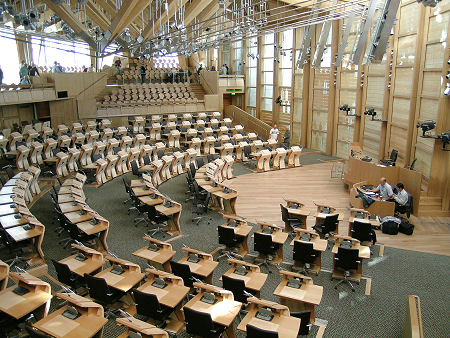With the news that someone has dobbed Ruth into the information commissioner for allegedly misusing a party e-mail list we have to ask about why the party has put so many strange rules into the process for selecting a new leader. Isn’t more information to be encouraged – shouldn’t we expect our leadership candidates to send us e-mails and letters?
Members will get only one “official” communication from each of the candidates and an invite to the hustings. Looking at the rules for the hustings members will basically see 4 press conferences, one after another. This all serves to severely restrict the interaction between members and leadership candidates and for no apparent reason (is it sheer bloody-mindedness, or does someone actually think that less information serves the membership well?)
The Sanderson Report made comment on the way the party selection procedures stymied debate and stopped constituency associations from making the best choices of candidates. Why are we pursuing the same format to select a leader?
Some of you will know that I was involved in an open primary selection meeting in Stirling which members of the public could engage with. During that meeting the panel sat together and had a good debate, airing a number of issues and challenging each other.
The decision we as a party are about to take is going to have repercussions for at least 10 years – we are looking for someone to lead us into the future. Without good information and good discussion how are we going to do this. It’s time for the party leadership to rethink the rules on hustings and give candidates as much access to the membership lists as they want.

 Tricia Marwick, presiding officer of the Scottish Parliament has asked the Standards, Procedures and Public Appointments committee to look at the sitting pattern for the parliament. It’s remit will be to “to consider how the parliamentary week can best be organised to allow the Parliament to be effective in its key roles of scrutiny and debate”.
Tricia Marwick, presiding officer of the Scottish Parliament has asked the Standards, Procedures and Public Appointments committee to look at the sitting pattern for the parliament. It’s remit will be to “to consider how the parliamentary week can best be organised to allow the Parliament to be effective in its key roles of scrutiny and debate”.





